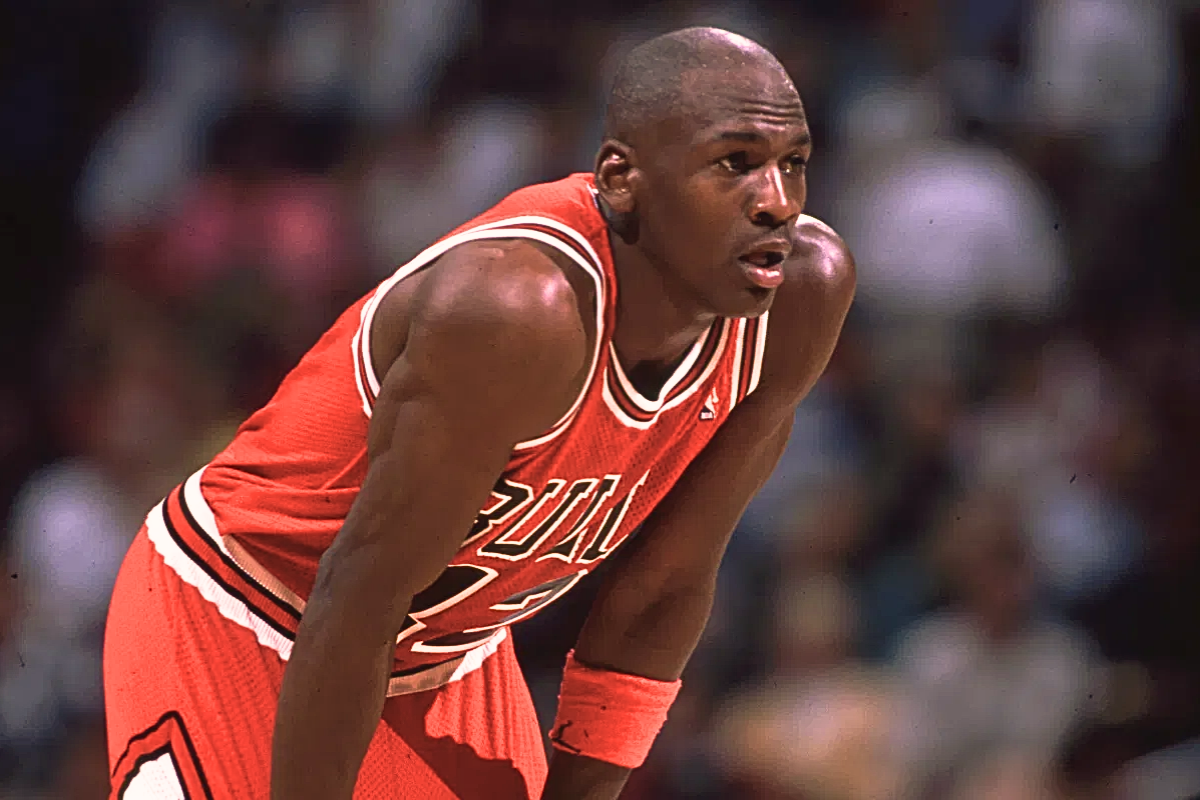

“Always turn a negative situation into a positive situation,” said Michael Jordan once. This is not just what he said but has also proved it multiple times. From dropping 69 points on the Cleveland Cavaliers after Craig Ehlo claimed to have “figured him out,” to torching LaBradford Smith for 36 first-half points after a perceived slight, Jordan’s response to challenges was always emphatic. But perhaps no comeback story better illustrates His Airness’s competitive fire than the 1995 episode that has recently been brought up.
Watch What’s Trending Now!
This moment was revisited on the latest episode of Run It Back TV, as host Michele Beadle brought up, “Alright Bulls, 95 Eastern Conference Semis, MJ has just come back from the baseball chapter, Nick Anderson said that Jordan ‘Didn’t look like the old Michael Jordan and No. 45 doesn’t explode like 23 used to.”
As soon as the analyst stopped, former NBA player and ex-teammate of Anderson Dennis Scott was quick to give a reason for why the shooting guard made such a comment at that time. “You’re in the moment, we’re young, we’re vibrant, we’re confident. Nick just had probably the arguably the biggest steal in the NBA history. So you understand where it was coming from,” said Scott during the podcast.
ADVERTISEMENT
During the 1994-95 season, Nick Anderson was a huge reason why the Orlando Magic was able to make the NBA Finals. He averaged 15.8 points, 4.4 rebounds, 4.1 assists per game, and 1.41 steals while making 47.6% from the field and 41.5% from beyond the arc. Moreover, Anderson was especially adept at capitalizing on the Magic’s terrific offensive cast, which included the young phenoms of Shaquille O’Neal and Penny Hardaway.
The result of Anderson’s comment was Game 1 of the 1995 Eastern Conference Semifinals, a pivotal game that marked Michael Jordan’s first full playoff series since returning from his baseball hiatus. In that game, Jordan donned the No. 45 jersey and not his usual No. 23 jersey, and scored 19 points and added 5 rebounds whereas Anderson posted 20 points so he made the comment “No. 45 is not No. 23.” Soon later, this very comment backfired for the Magic as it fueled Jordan’s rage.
Jordan came out with 23 in Game 2 and dished out a 38-point performance coupled with 7 rebounds, 3 assists, 4 blocks, and 4 steals. The Bulls won 104-94 to even the series, but eventually lost as Orlando blasted them 4-2.
ADVERTISEMENT
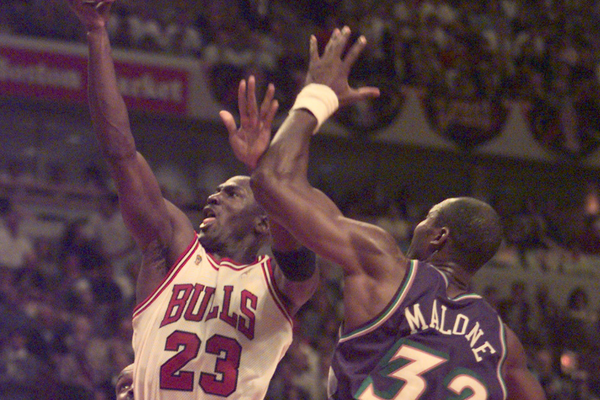
USA Today via Reuters
Jun 4, 1997; Chicago, IL, USA; Chicago Bulls guard Michael Jordan goes to the basket past Karl Malone in game two of the 1997 NBA Finals at the United Center. Mandatory Credit: Anne Ryan-USA TODAY
Ultimately, Anderson’s words and Scott’s reflections remind us of the relentless nature of competition. As for the jersey, Jordan went on to wear his iconic No. 23 jersey and even won three more championships with the Chicago Bulls. But why did His Airness move to jersey No. 45 in the first place?
ADVERTISEMENT
The reason why Michael Jordan chose the No. 45 jersey on his return
When Michael Jordan made his long-awaited return to the NBA in March 1995, he shocked fans not only with his presence but with the fact he had a new jersey number — 45. But the reason for the switch was personal and symbolic.
In 1993, Jordan retired from basketball to play baseball, after his father James Jordan’s untimely demise. Jordan chose No. 45, a number he had worn during his baseball days and in high school, as a fresh start in his comeback.
ADVERTISEMENT
“I didn’t want to wear 23 because I knew my father wasn’t there to watch me, and I felt it was a new beginning and 45 was my first number when I was playing in high school,” said Jordan.
Top Stories
Shaquille O’Neal’s Lakers Teammate Arrested Again As Arizona Court Issues Verdict On Order Violation
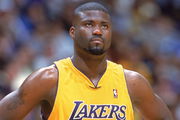
Did Zion Williamson Slide Into Sydney Sweeney’s DMs? Fact Checking the Viral Screenshot
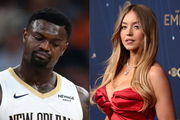
Anthony Edwards Breaks Silence On Wolves HC Chris Finch Ejection After Win vs OKC

Bucks Eyeing $97M NBA Guard To Help Giannis Antetokounmpo, As Per Reports
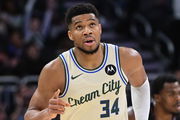
Shaquille O’Neal Drops Verdict On Jake Paul vs Anthony Joshua After Round 6 KO
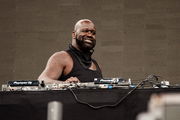
But in the end, all it took was one taunt from Anderson to get Jordan to realize that 45 was not 23 indeed and didn’t have the same natural feeling he did with 23. The switch fueled his resurgence, cementing his legacy as not just a symbol of greatness but as a competitor who thrived under pressure.
ADVERTISEMENT
ADVERTISEMENT
ADVERTISEMENT
ADVERTISEMENT

